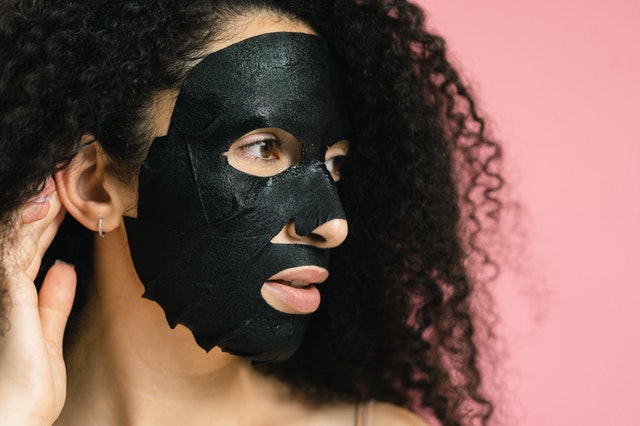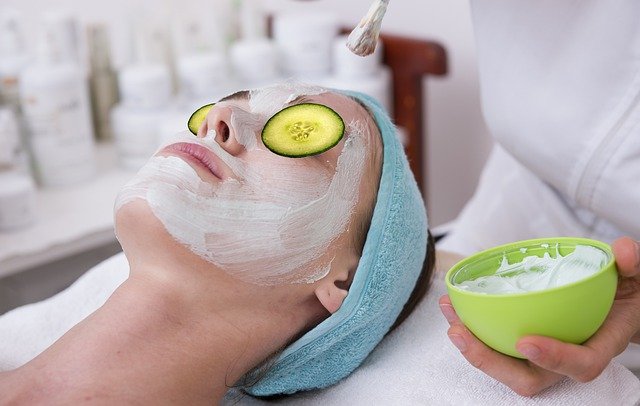You're probably no stranger to the frustration of dealing with inflamed skin, whether it's a minor bug bite or a persistent acne breakout. But what if you could quickly and effectively calm the redness and swelling? Certain natural remedies have been shown to do just that, providing rapid relief from skin irritation without the harsh side effects of conventional treatments. By understanding how these remedies work and incorporating them into your skincare routine, you may be surprised at how quickly your skin responds – and the dramatic difference it can make in your overall complexion.
Natural Aloe Vera Gel Soothes
When you apply natural aloe vera gel to inflamed skin, it soothes the irritation by reducing inflammation and promoting healing. You'll feel the cooling effect almost instantly, and your skin will start to calm down. Aloe vera contains compounds like aloin and aloe-emodin, which have potent anti-inflammatory properties. These compounds help to reduce redness, swelling, and pain, making it an effective remedy for sunburns, eczema, and other skin irritations.
As you continue to use aloe vera gel, you'll notice that your skin starts to heal faster. This is because aloe vera stimulates collagen production, which helps to repair damaged skin tissue. It also has antimicrobial properties, which prevent infections and promote a healthy skin environment. With regular use, you can say goodbye to inflamed skin and hello to a smoother, more radiant complexion. So, the next time you're dealing with skin irritation, give natural aloe vera gel a try. You'll be amazed at how quickly it soothes and heals your skin.
Cucumber Hydrates and Cools Skin
While aloe vera gel excels at soothing inflamed skin, another natural remedy – cucumber – takes center stage when it comes to hydrating and cooling the skin. You'll find that cucumber works wonders in reducing inflammation and puffiness. Its high water content – a whopping 96% – makes it an excellent hydrating agent, providing your skin with the moisture it needs to recover from inflammation. Plus, its cooling properties help constrict blood vessels, further reducing swelling and redness.
You can apply cucumber to your skin in various ways. Slice it thinly and place it on the affected area, letting its cooling properties work their magic. Alternatively, you can mash it and mix it with yogurt or aloe vera gel to create a soothing paste. Leave it on for 15-20 minutes before rinsing it off with cold water. With regular use, you'll notice a significant reduction in inflammation and an overall improvement in your skin's texture and tone. Cucumber is a simple, yet effective remedy that'll help you say goodbye to inflamed skin in no time.
Tea Tree Oil Reduces Swelling
In the fight against inflammation, tea tree oil is another powerful ally that helps reduce swelling by constricting blood vessels and easing fluid buildup. You'll love how it quickly gets to work, bringing down puffiness and relieving painful pressure. But that's not all – its antibacterial properties also help fight off infections that can trigger or worsen inflammation. Additionally, tea tree oil has been shown to have antioxidant properties, which can help protect your skin from sun damage. This makes it a valuable addition to your skincare routine, especially during the summer months when your skin is more prone to inflammation and damage from UV rays. By incorporating tea tree oil into your daily regimen, you can not only reduce inflammation, but also promote overall skin health and protection.
When using tea tree oil, you'll want to dilute it with a carrier oil, like coconut or olive oil, to avoid irritating your skin. Then, simply massage the mixture onto the affected area, allowing the tea tree oil to penetrate deep into your skin. You can also add a few drops to your bath water for an all-over anti-inflammatory soak. As you use tea tree oil regularly, you'll notice the swelling decrease, your skin tone will even out, and you'll feel more confident in your own skin. By incorporating this amazing oil into your self-care routine, you'll be taking a massive step towards saying goodbye to inflammation for good.<|eot_id|>
Green Clay Face Masks Detoxify
With its powerful absorptive properties, a green clay face mask helps draw out toxins and impurities from deep within your pores, detoxifying your skin and reducing inflammation. When you apply a green clay mask, you'll feel it start to tighten and dry, which is a sign that it's working to absorb excess oils and purify your skin. As the mask dries, it lifts out blackheads and other impurities, leaving your pores feeling clean and refreshed.
Using a green clay face mask also helps to balance your skin's natural pH, which can become imbalanced due to environmental stressors, makeup, and other factors. By restoring your skin's natural balance, you'll notice a reduction in redness and irritation. To get the most out of a green clay face mask, apply it 1-2 times a week and leave it on for 10-15 minutes. Be sure to rinse thoroughly with warm water and follow up with a gentle moisturizer to lock in the benefits. By incorporating a green clay face mask into your skincare routine, you'll be taking a proactive approach to maintaining healthy, inflammation-free skin. Regular use can lead to long-term improvements in skin clarity and tone.
Chamomile Tea Cools Acne
Sipping on a soothing cup of chamomile tea can help calm acne-prone skin from the inside out, targeting inflammation and reducing redness with its potent anti-inflammatory properties. As you drink, the active compounds in chamomile tea, such as apigenin and luteolin, get to work on soothing your skin, reducing inflammation, and calming irritated skin cells.
Reduce Redness With Rosewater Toner
As chamomile tea works its anti-inflammatory magic from the inside out, you can also target redness and irritation directly on the skin's surface with the calming, soothing properties of a rosewater toner. You'll love how this natural astringent gently balances your skin's pH, reducing the appearance of pores and leaving your complexion looking smoother and more even-toned. With its anti-inflammatory and antioxidant properties, rosewater toner is the perfect addition to your skincare routine, especially when you're dealing with acne, rosacea, or other inflammatory skin conditions.
To use rosewater toner, simply sweep it across your face and neck with a cotton pad after cleansing, then follow up with your usual moisturizer. You can also use it throughout the day to calm and refresh your skin. Look for a pure, organic rosewater toner that's free of harsh chemicals and artificial fragrances. With regular use, you'll notice a significant reduction in redness and irritation, and your skin will look and feel healthier and more radiant than ever. Give rosewater toner a try and say goodbye to inflammation and hello to glowing, balanced skin.
Cystic Acne Cures With Turmeric
Harness the powerful anti-inflammatory properties of turmeric to tackle even the most stubborn cases of cystic acne and start seeing noticeable improvements in your skin. You can use turmeric to create a face mask by mixing it with a small amount of water or yogurt to form a paste. Apply this paste to the affected area and let it sit for about 10-15 minutes before rinsing with lukewarm water. The curcumin in turmeric will help reduce inflammation and prevent further breakouts.
You can also take turmeric internally by adding it to your meals or drinking turmeric tea. This will help reduce inflammation from the inside out and promote overall skin health. When consuming turmeric, be sure to add a pinch of black pepper to enhance the absorption of curcumin. Start with a small dose and gradually increase as needed. Consistency is key when using turmeric to treat cystic acne. Stick to your routine and you'll start to see improvements in your skin over time. With turmeric, you can say goodbye to painful, inflamed acne and hello to a clearer, healthier complexion.
Calendula Oil Heals Breakouts Quickly
By incorporating calendula oil into your skincare routine, you can rapidly reduce inflammation and promote healing in even the most stubborn breakouts. You'll be harnessing the potent anti-inflammatory and antimicrobial properties of calendula, which will help to soothe redness and prevent infection. As you apply calendula oil to your skin, you'll be supporting the natural healing process, reducing the appearance of acne, and preventing scarring.
You can use calendula oil as a spot treatment, applying a few drops directly to individual breakouts, or mix it with your regular moisturizer for a broader anti-inflammatory effect. Calendula oil is gentle enough for sensitive skin, so don't worry about irritation or dryness. Instead, you can expect to see a noticeable reduction in inflammation and redness within a few hours. With regular use, you'll be on your way to clearer, more radiant skin, and you'll be saying goodbye to those pesky breakouts for good. Make calendula oil a staple in your skincare routine, and you'll be thrilled with the rapid results. Get ready to reveal a smoother, more even-toned complexion that glows with health.<|eot_id|>
At a Glance
You've now got the inside scoop on the top natural remedies for reducing inflammation and soothing irritated skin. With aloe vera gel, cucumber, tea tree oil, and more at your disposal, you'll be saying goodbye to redness and hello to radiant, healthy-looking skin. Regular use of these gentle remedies will leave you with clearer, more even-toned skin and fewer breakouts. Your skin will thank you for ditching harsh chemicals and switching to these effective natural fixes.






